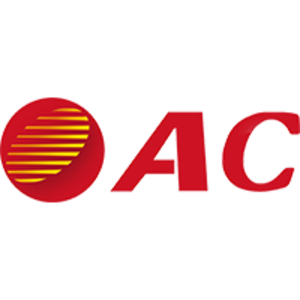LANGUAGE↓

News & Policies

21 New Trends in Tax Related Crimes
Taxation is the main source of national finance, and tax collection and management crimes not only disrupt the order of national tax collection and management, but also directly endanger national taxation, erode the economic foundation of the country, and undermine the social integrity system. On March 18, 2024, the Supreme People’s Court, together with Supreme People’s Procuratorate, the Ministry of Public Security, and the State Administration of Taxation, held a press conference to release the "Two Highs" "Interpretation on Several Issues Concerning the Application of Law in Handling Criminal Cases Involving Harmful Tax Collection and Management", which will come into effect on March 20, 2024.
Key points - Some major changes in the revision of the "Twenty One Articles”:
Article 1: Further refinement of false taxation and regulation of "yin-yang contracts"
The signing of "yin-yang contracts" has been explicitly listed as a means of tax evasion for the first time, providing a precise basis for judicial authorities to handle such cases in the future.
Article 2: The standards for conviction and sentencing have been raised, but supervision may not be relaxed
Taxpayers who evade paying taxes of more than 100000 yuan and more than 500000 yuan shall be respectively recognized as having "a relatively large amount" and "a huge amount" under the provisions of the crime of tax evasion.
Article 3: Supplementary payment of taxes and losses may be subject to lenient punishment
Proposing legal conditions for proactive retroactive payment, clarifying that the notice from the tax authority serves as a formal legal procedure, and specifying exceptional circumstances and conditions for not pursuing criminal responsibility. The purpose of this article is to encourage taxpayers to actively pay overdue taxes and late fees, and to exempt them from criminal responsibility under certain conditions.
Article 4: "Unprocessed" may require further processing
The Interpretation explains that "unprocessed" includes both administrative and criminal penalties, meaning that taxpayers or withholding agents have committed multiple tax evasions within five years, but each time the amount of tax evaded has not been subject to administrative or criminal penalties. The act of tax evasion spans several tax years, and as long as the amount and percentage of tax evasion in one of the tax years meet the standards stipulated in Article 201 (1) of the Criminal Law, it constitutes the crime of tax evasion. The amount of tax evasion for each tax year should be calculated cumulatively, and the percentage of tax evasion to the payable tax amount should be determined based on the highest percentage of tax evasion for each tax year.
Article 8: To defraud the state of export tax rebates, the statutory punishment shall be upgraded and clearly defined
Clarify the statutory penalty upgrade conditions for "large amount", "huge amount", and "particularly huge amount" under the crime of "fraudulently obtaining national export tax rebates", especially the addition of provisions for "more than three false declaration of export tax rebates within two years" and "criminal punishment or administrative punishment for fraudulently obtaining national export tax rebates within five years".
Article 9: Export tax refund intermediary organizations shall face criminal penalties
It is clear that for attempted offenders who commit acts of fraudulently obtaining national export tax refunds but have not actually obtained export tax refunds, the punishment may be lighter or mitigated compared to accomplished offenders. It is highly noteworthy that the Interpretation has added criminal responsibilities for intermediary organizations and their personnel engaged in goods transportation agency, customs declaration, accounting, taxation, foreign trade comprehensive services, etc. Intermediary organizations may face criminal penalties based on this.
Resource from 最高人民法院 最高人民检察院关于办理危害税收征管刑事案件适用法律若干问题的解释 (chinatax.gov.cn)





